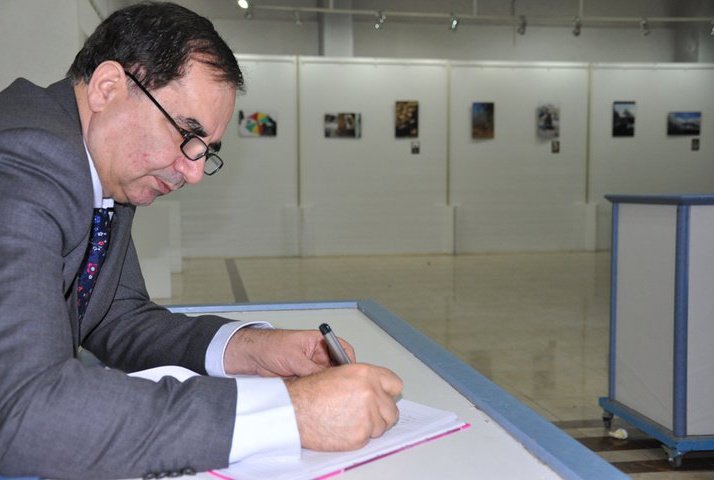
By Dr Kamal Mirawdeli:
The academic problematic which the removal of President Morsi of Egypt presents for the political science is this question: was it a coup?
On the surface the answer is clear. Of course it was a coup: a military power dumping a democratically-elected president and ending his four-year democratic mandate after only one year in office, which obviously was an act of violation of the concept, process and institutions of democracy.
So far, so good. But if this act was accepted as a coup, then we surely have to review the definition of the concept of ‘coup d’etat’. For, though the outcome was an immediate change brought about by a military act, the background, process and actors cannot be reconciled within the classical recognition of a coup d’etat, especially in the Middle East: A group of army officers plot in darkness, choose ‘the decisive moment’, grab power, issue the Declaration No 1, introduce themselves and impose their will on the people, for an unlimited time, as ‘ The Leadership Council of Revolution’.
No, this coup was more akin to an open public theatrical, starting with street shows and ending with a palace matrimonial bond ceremony, leaving the onlookers thereafter to either freely celebrate or deeply mourn as they wished.
All the preceding events had been openly unfolding in front of Morsi since a small group of protestors met in April 2013 and set up the project of the Second Revolution by the openly-defying name of Tamarrud – Rebellion. From then on, everyone could watch the actors and the Acts and Scenes of the drama on the Tahrir Square stage and other performance stages all over Egypt.
Cleverly combining social media mobilization and street organisation, Tamarrud managed, within three months, to collect over 20 million signatures asking for the end of Morsi’s misused mandate. By then even a rock could surmise that the end-game of the revolutionary plot was the removal of the delusionary President.
So the tragic element is that the one who seems had failed to closely watch the play and understand his own pivotal role in its plot was Dr Morsi. He never recognised, let alone reversed, the tragic flaw of his first hasty Constitutional Decree setting himself above the judiciary and law. Perhaps he thought this was something right for him: representing sharia in his belief system, putting him above any secular institutions and constraints. So other dangerous decrees and decisions undermining state institutions followed.
It was Morsi who appointed Abdul-Fatah Sissi as Defence Minister. Last month Sissi twice gave notice to Morsi that he was dividing the nation, and he must set up a coalition government or resign: the first ultimatum was for a week, the second was for just 48 hours. Morsi stubbornly chose defiance over compromise.
Still, until the last moment he was confident that the republican guards would protect him. Unfortunately ideology had blinded Dr Morsi from seeing reality. Morsi and the Islamic Brothers wrongly and opportunistically read democracy as an urgent instrument to impose their own ideological agenda upon the pluralistic Egyptian society. Instead of seeing themselves as the government of all and for all people, they insisted that they represent a 52% majority and this gives them a democratic mandate to subjugate the rest to their religious agenda.
Morsi always saw his half-full part of his glass and never saw the other empty half.
He saw democracy as the power of the 52% majority over the relegated minority, justifying practising it as party-o-cracy and eventually autocracy.
Thus an opportunity afforded to the Muslim Brothers in 80 years, was squandered in just 8 months.
The truth is all these ideological divisions are nonsense and totally misleading.
In fact, every political force can in one way or another, move the street. Over 80% of the Egyptian people are poor: the average family subsists on just 10 dollars a day.
What people want is neither the Muslim Brother’s sharia, nor the liberalism of a detached elite: They want bread, petrol, security and jobs. As long as the economic problems of Egypt persist, there remains this revolutionary core of unemployed youth who can fill up the Tahrir Square twice over and can be exploited equally by the Liberals, Brothers or the Generals, according to the alternates of power and inefficiency.
Alas, Morsi did not understand this fact. His tragedy was not that he did not believe in democracy, but that he had too much confidence in democracy as an opportunistic tool to urgently exploit for the creation of an Islamic regime that represent Brothers’ historically-frustrated vision.
This understandably frightened the liberal-minded and secular people that Morsi was striving for an Iranian style Islamic regime, especially after the former Iranian President visited Cairo and expressed his enthusiastic support for the Brothers.
However, Morsi was the first democratically–elected civil President of Egypt. He should have had enjoyed his right to complete the four years of his mandate.
To topple a democratically-elected President through military power is a grave violation of the concept, process and institutions of democracy, which must be condemned. The fear that the Brothers might turn Egypt into an Iranian model of Islamic rule was justified, but this fear should have been dealt with by means of dialogue and protest and democratic patience, not by means of a staged military coup that has taken back from millions of Egyptians their democratic votes, disappointed them about the prospects of democracy in their country and put Egypt in a dangerous period of division, strife and uncertainty.
This article was originally published in Kurdish on 7 July 2013
.jpg)


